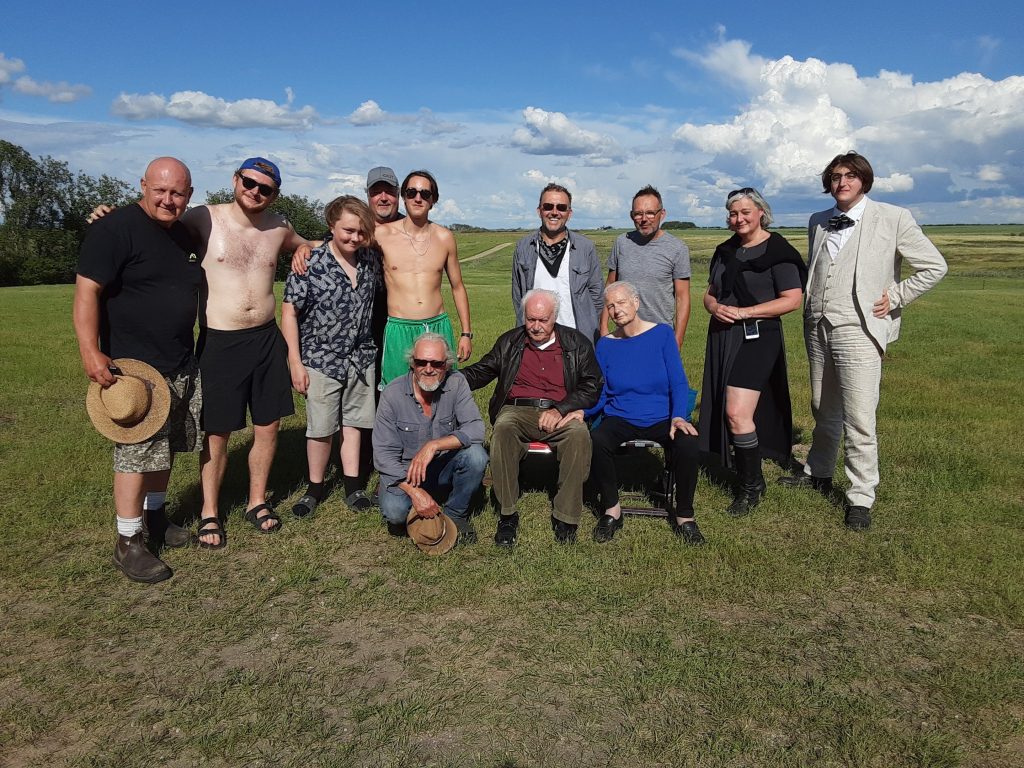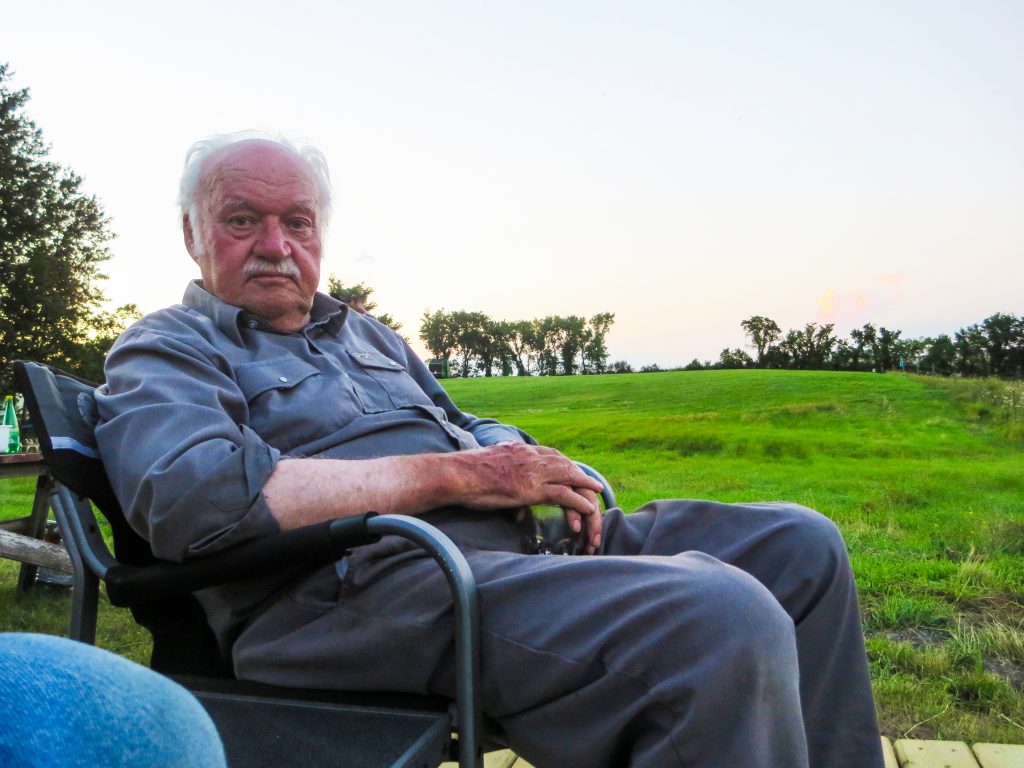By Gertrud Bessai
It is important to remember how the Faculty of Education all started not so very long ago! Here is the life story of someone who was instrumental in the development of the Faculty.
Fred Bessai, BA’58, BEd’60, MEd’62, PhD’64, Fellow of the Royal Society in London
Fred was born November 9, 1932 on the family subsistence farm near Southey, Saskatchewan. He was the second son and fourth child. At home both parents and children spoke a Germanic dialect and in school the children learned English. Fred’s parents were multilingual and could easily talk with the Romanian and Ukrainian speaking neighbours. At 5 years of age, Fred entered the nearby one-room school where he did so well that he skipped a grade somewhere along the way. The school only offered Grades 1 to 10 and so he decided to to earn Grades 11 and 12 through correspondence, four classes at a time while working on farm. During this time he and his younger brother cleared a fairly large piece of land of a huge number of stones. The first crop off that land paid for a year at Teachers’ College in Moose Jaw. Fred managed to land a job teaching in a one-room school fairly close by and so was able to return home daily and continue to help out on the farm. Following in his elder brother Frank’s footsteps, Fred went off to study at the University of Saskatchewan after having taught in various schools. He entered the arts program and graduated with a BA in 1958. Summers were spent sieving and testing bearing capacity for the Department of Highways. But then disaster struck! His younger brother died and Fred had to hurry back home. By this time his father was ailing! The decision was made to move their parents into Southey and to convert the farm to a strictly wheat farm. Fred was able to do the seeding, and the pasture was rented out, while spraying and summerfallow was accomplished with the help of others. After their parents were settled, Fred went back to work for the Department of Highways, this time as inspector, to earn enough to continue with his education. After harvest, it was back to Saskatoon, to enrol in the College of Medicine. But, medicine proved to be the wrong choice! Fred returned to the farm at end of term. The income from the farm had to support his parents! But his need to further his education was huge, so Fred worked out a system to accomplish both. 1960 saw his graduation with a BEd and a trip to Europe where Frank, was working on his PhD in English. While there they looked up their father’s relatives who had made their way from the Bukovina/Roumania to Germany. They also found their mother’s mother in East Germany and managed to get her out and ultimately to Canada! Back in Canada, Fred enrolled in a master’s program with the help of a scholarship provided by the Saskatchewan Teachers’ Federation. During that time he met Gertrud von Gernet, who later became his wife. With the Master’s finished in 1962, Fred looked further afield for a PhD. Since Frank was now teaching English in Edmonton, Fred decided to try his luck there. The Dean offered a teaching fellowship. With his livelihood secured, Fred threw himself into studies and teaching. But the farm still needed attention, and so he drove home to seed, arranged for spraying and summerfallow, drove back for summer classes, and then returned for harvest and to sell the crop. This pattern of academic life and farm life ended up the pattern for his entire life.
In the summer of 1964, with the thesis completed and accepted, he was hired by Dr. Lester Bates, dean of the newly formed College of Education in Regina. The teachers from the Teachers’ College in Moose Jaw joined the Arts and Science professors in Regina to form the new junior campus of the University of Saskatchewan. In the beginning there were three PhDs in the Faculty of Education: Dr. Bates, dean; Dr. Buck, formerly head of the correspondence school; and Fred! The rest of the faculty were Fred’s former teachers. Since he was the youngest and most familiar with the current research, he was tasked to help develop the Education library. Then, when the new campus was being built, he was delegated to help design the new Education building. All the while he was teaching whatever classes seemed to be needed in his field: measurement, early childhood education, and finally research. He worked hard to get the master’s program on the books and finally started the PhD program. During this time he was also the Education delegate to Saskatoon when the Regina campus wanted to separate and become an independent university.
Many of his former teachers and others wanted to upgrade and Fred was always ready to lend a helping hand. But his greatest joy was to help the young teachers to earn their master’s degrees. It did not matter in which direction their interests lay, he was there to ensure that they learned the all important methods of research and writing. He kept up with the most recent research by attending NCME and Learnet Society. Meanwhile, the farm was looked after on weekends and during holiday time. The only time he took a sabbatical was to go to Prince Edward Island, where a perfect “lab” situation had materialized. The small one-room schools were to be replaced by large consolidated ones. What was the learning environment? How well did students fare? The result was a book authored by Dr. Edward L. Edmonds, dean and Dr. Frederic Bessai (1979). Fred spent his entire career at the University of Regina, although he was offered several other positions including a deanship. His two great loves: teaching and farming kept him here. Today he has celebrated his 90th birthday, and still enjoys reading about the history of the province and reminiscing about days gone by!

Photo credit Gerald Saul
